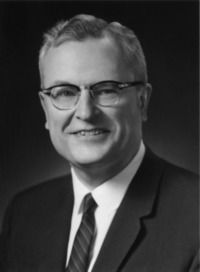 Chad Oldfather has a new paper on SSRN reviewing William Domnarski’s book Federal Judges Revealed. Not exactly the lurid exposé suggested by the title, Domnarski’s book synthesizes the insights he gained from reviewing more than 100 oral histories given by federal judges to different interviewers over a period of many years. As Chad notes, oral histories have the potential to add much to our understanding of the judiciary, for judges are generally less guarded about their personal views and experiences in these interviews than in their written opinions. On the other hand, as a drawback to oral history, Chad notes that there is no clearly established, rigorous methodology for taking an oral history. That may be one reason that Domnarski’s book apparently lacks any really surprising insights into the federal judiciary.
Chad Oldfather has a new paper on SSRN reviewing William Domnarski’s book Federal Judges Revealed. Not exactly the lurid exposé suggested by the title, Domnarski’s book synthesizes the insights he gained from reviewing more than 100 oral histories given by federal judges to different interviewers over a period of many years. As Chad notes, oral histories have the potential to add much to our understanding of the judiciary, for judges are generally less guarded about their personal views and experiences in these interviews than in their written opinions. On the other hand, as a drawback to oral history, Chad notes that there is no clearly established, rigorous methodology for taking an oral history. That may be one reason that Domnarski’s book apparently lacks any really surprising insights into the federal judiciary.
As one of the more interesting aspects of the book, Chad highlights Domnarski’s treatment of the role of judicial clerks: “Federal Judges Revealed provides valuable testimony from judges regarding how they use their clerks, and how much they depend on them.” For instance, one judge says, “[M]any of [my clerks] have an ability to grasp technical details and relationships that entirely escape me. Let’s face it; I try to get clerks who are significantly brighter than I am.” Some may find such statements about the importance of clerks a bit troubling — one might question who is really in charge, the presidentially appointed judge or the fresh-out-of-law-school clerk.
I wonder, though, to what extent the judges giving the oral histories were being overly modest about their own roles in an effort to give a “shout-out” to their hard-working clerks, with whom many maintain mentoring relationships long after the clerkship is over. Perhaps the judges would have expressed themselves differently had they known the oral histories would one day be used as the basis for a scholarly monograph on the judiciary like Domnarski’s.
In any event, long-time members of the Wisconsin legal community may find a different aspect of Chad’s paper particularly interesting: his review of three oral histories given by Judge Thomas Fairchild (pictured above), who served on the Wisconsin Supreme Court from 1957 until 1966 and on the Seventh Circuit from 1966 until 2007. Chad took an independent look at the Fairchild interviews, which are unpublished, in order to get a better sense of the strengths and weaknesses of oral histories as a way to study the judiciary. Of particular interest is Farichild’s explanations about why he left the Wisconsin Supreme Court for the Seventh Circuit.
Entitled “Oral History and the Study of the Judiciary,” Chad’s paper was published at 78 George Washington Law Review Arguendo A-101 (2010).
